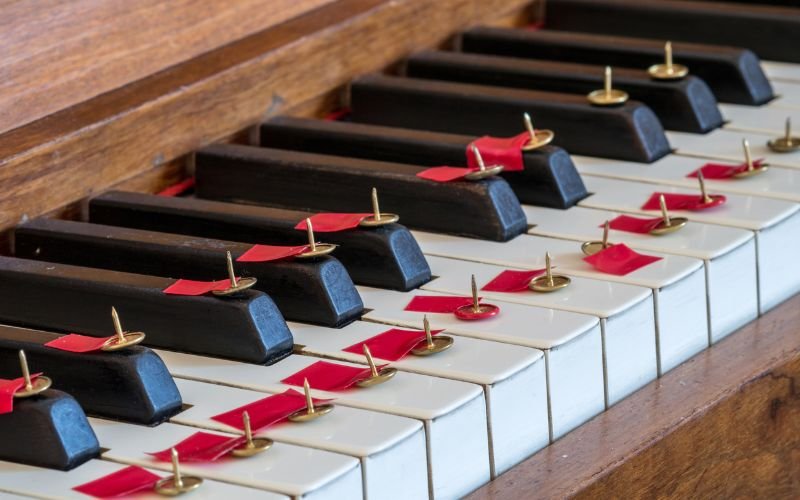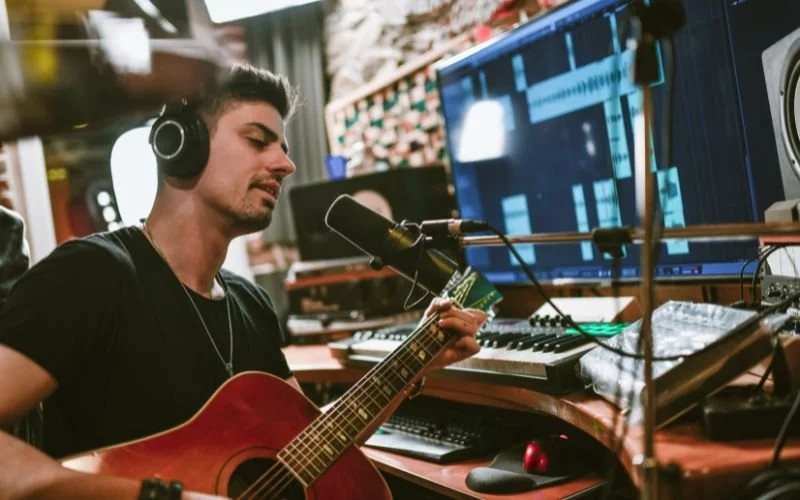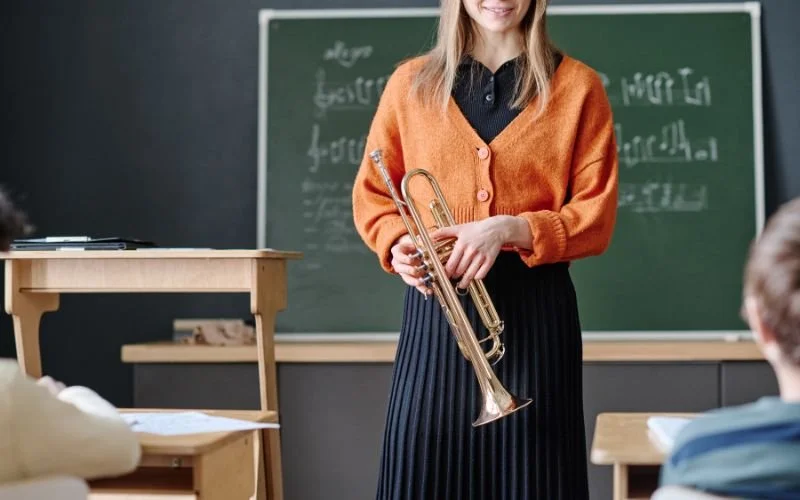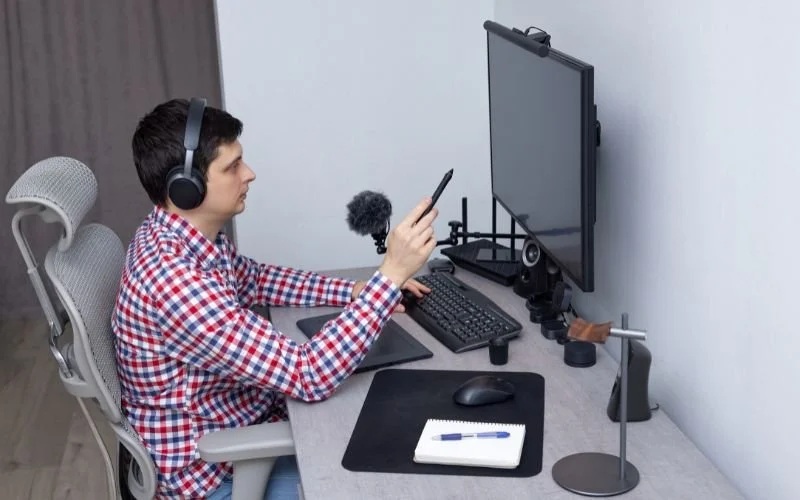Playing music in silence: how to practice without making noise?
As we all know, music softens the soul... But it can sometimes become a source of tension when it's played in the wrong place at the wrong time. Whether you live in a small apartment, are often on tour or find inspiration late at night, it can be useful to know how to play without disturbing those around you. Fortunately, it's possible to reduce the volume of your musical practice without compromising the sound quality of your playing. Discover our tips for playing music without disturbing the neighbors, and avoid becoming public enemy number one!
Volume reduction: accessories and techniques for silent playing
Playing music is great, but sometimes volume can be a real problem. Whether you don't want to trigger a revolt among your neighbors, avoid waking up the whole house, or simply want to practice discreetly, there are simple solutions for playing without making noise. From accessories to playing tips, here's how to control the sound of your instrument without losing a note of pleasure.
Accessories that mute your instruments
Did you think that playing drums, piano or trumpet in silence was mission impossible? Not if you have the right accessories at hand! Mutes, drum covers and digital pianos make life easier. These ingenious devices reduce the volume of your instrument while preserving the quality of your playing. A last-minute rehearsal in an apartment or a late-night inspiration? With these solutions, your neighbor won't even know you're playing.
For brass instruments : mutes are a real revolution. Placed in the bell of the trumpet or trombone, they effectively attenuate sound without altering in-tune performance. Whether rubber, metal or fiber, each material offers a different sound texture. A rubber mute, for example, produces a muffled sound, perfect for a late-night session without waking the neighbors.
For strings: violinists and violists can attach a mute directly to the bridge to limit string vibration. The result: a softer sound that lets you work on your scales without cluttering up the sound space.
For the guitar: musicians can opt for a specially designed guitar mute, which reduces volume without altering tonality. There are also amplifier simulators that allow you to play at low volume, or even silent electric guitars that can be plugged directly into headphones.
For drums : drummers are well advised to try drum covers or rubber pads to reduce the impact of drumsticks on skins and cymbals. An electronic drum kit with headphones is also a formidable solution for practicing without noise.
For the piano: if you are a pianist, you can activate the built-in mute system (often a felt bar), play with the soft pedal (also known as the "una corda pedal"), or use a digital piano which combines sound isolation and playing quality. So you can play at any time of day, even in an apartment.
Taking your first steps in music? Discover the must-have accessories for every beginner musician!
Learn to control the volume of your instrument through technique
Learning to control the volume of an instrument can also be done using techniques that do not require additional equipment:
For wind instruments: breath is your superpower. By adjusting the intensity of your breathing, you can reduce the volume without losing the quality of your sound, ideal for those moments when you need to play softly, without sacrificing nuance.
For stringed instruments: the bow is your partner. By placing it closer to the bridge or releasing the pressure on the strings, you'll obtain a softer sound, perfect for practicing in total discretion.
For the piano: in addition to the soft pedal, the secret lies in the touch. A light touch on the keyboard produces delicate, almost whispered notes.
For drums: adopt a lighter stroke with your sticks to limit the impact on the skins and cymbals. By focusing on precision rather than power, you can reduce the volume of your drums without losing expressiveness.
Adapt your space: your neighbors will thank you!
A good environment is half the battle if you want to play discreetly. Curtains, carpets and a little common sense can make all the difference (your neighbors will be grateful). And if your walls could talk, they'd applaud you!
Interior design: how to optimize room acoustics?
Transforming a room into a rehearsal studio or a space for your music lessons is no miracle, but rather a matter of simple, effective tricks.
First, consider adding thick fabrics: heavy curtains, soft carpets, anything that can absorb sound and limit unwanted vibrations. These materials prevent noise from penetrating the walls and soften the acoustics.
Walls can be fitted with acoustic panels or thick wallpaper to limit reverberation. Looking for a simple, cost-effective solution? Attach shelves filled with books to the walls. Not only does this absorb sound, it also adds to the decor.
Next, test different room configurations. Moving furniture or repositioning a sofa can reduce reverberation and prevent the sound of your instrument from bouncing around.
Where to set up your music corner to minimize noise pollution?
Rooms away from common areas or isolated from each other, such as basements, guest rooms, or even a corner in the garage, are perfect for more discreet use. These places naturally reduce the propagation of sound in the rest of the house.
If, despite everything, the noise problem persists and your solutions aren't enough, why not invest in a soundproof acoustic booth? These cabins are specially designed to contain sound, whether for drums, piano or vocal rehearsals. They offer perfect insulation and allow you to play to your heart's content without disturbing your neighbors.
🎻 Music and neighborhood rules: when should the volume be turned down?
Do you live in an apartment building or condominium? Find out about the authorized times for noisy activities, generally specified in the condominium by-laws or municipal ordinances. These times often define quiet periods, such as between 10 p.m. and 7 a.m. By respecting these rules, you can calmly plan your next piano or tuba rehearsal without the risk of disturbing your neighbors or receiving complaints. Don't forget that open communication with your neighbors can also prevent potential conflicts.
How to rehearse discreetly, even away from home
Want to rehearse your scores while on vacation or practice before a concert, even away from home? When you're on the move, finding a quiet place to play can be a real headache. In a hotel or temporary accommodation, discretion is essential. Opt for more discreet instruments or digital solutions: an electric guitar with headphones instead of an acoustic, a digital keyboard for full volume control, or a silent portable amp. These options let you play without disturbing anyone, wherever you are.
In short, play music, yes, but... in silence!
Playing music without disturbing those around you is not only a mark of respect, but also a valuable skill that enables every musician to coexist harmoniously with his or her environment. Here's what you need to remember:
Use absorbent fabrics on walls and floors (curtains, carpets) and reorganize your room to limit reverberation and noise.
Choose isolated rooms such as basements, or those away from common areas.
Use accessories designed to play without disturbing the neighbors: mutes, electronic or digital instruments, and headphones will be your allies.
Find out about noise regulations and hours in your neighborhood.
Test the options to find the one best suited to your instrument and environment.
🎶 Whether for a remote rehearsal, an at-home piano lesson or a live concert, the Newzik digital score player digital sheet music player accompanies you every day. No more flying sheets, everything is organized, accessible and ready for your rehearsals, whether silent or not. Want to focus on the essentials without the headaches? Try Newzik now (and what's more, the trial is free for a week)!





